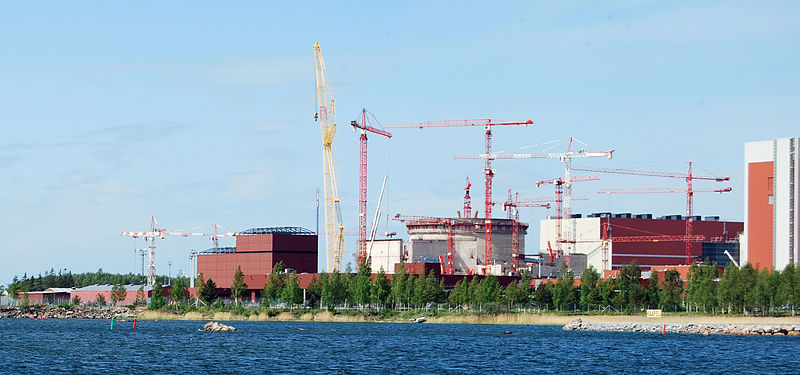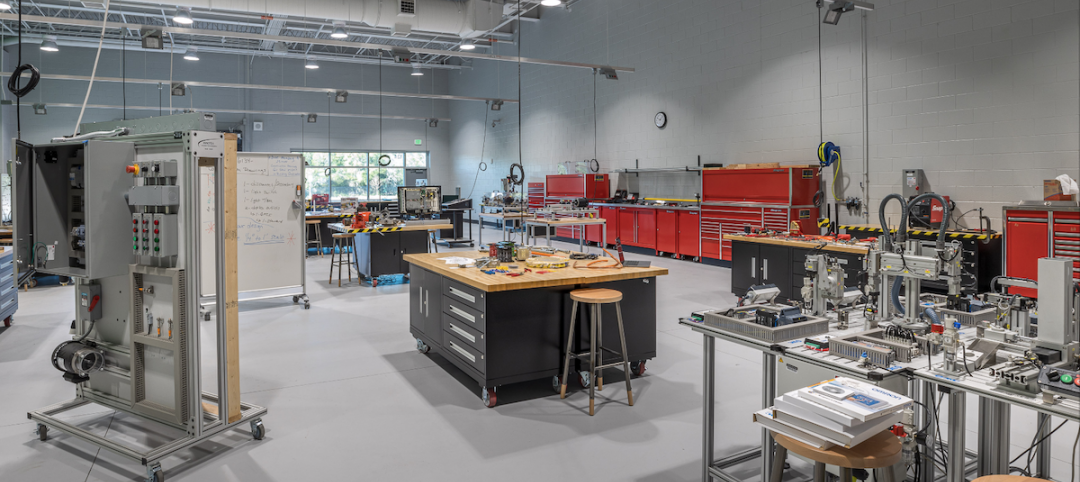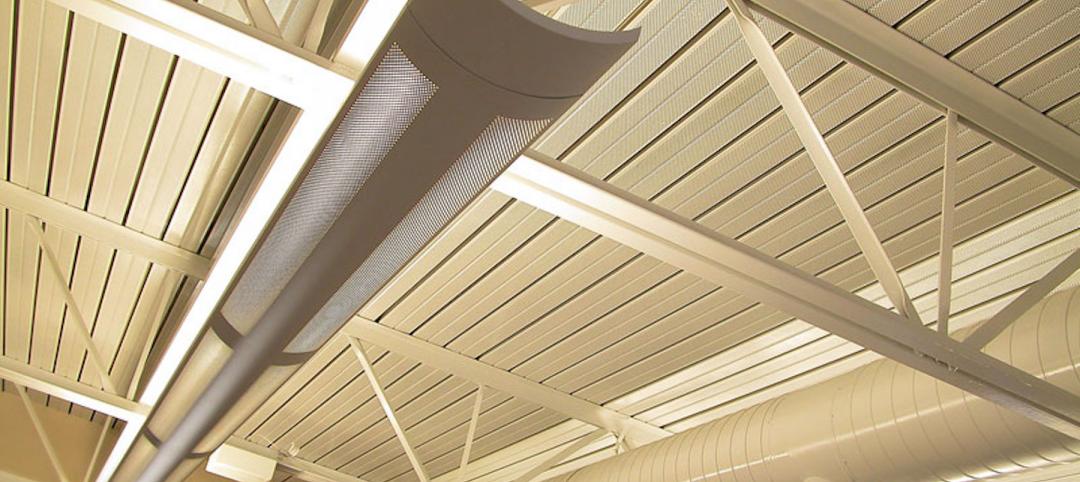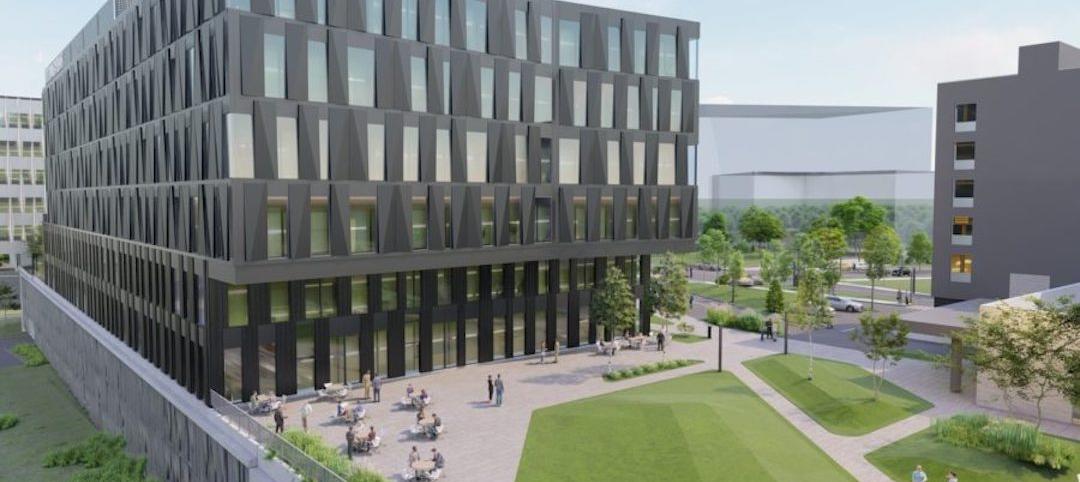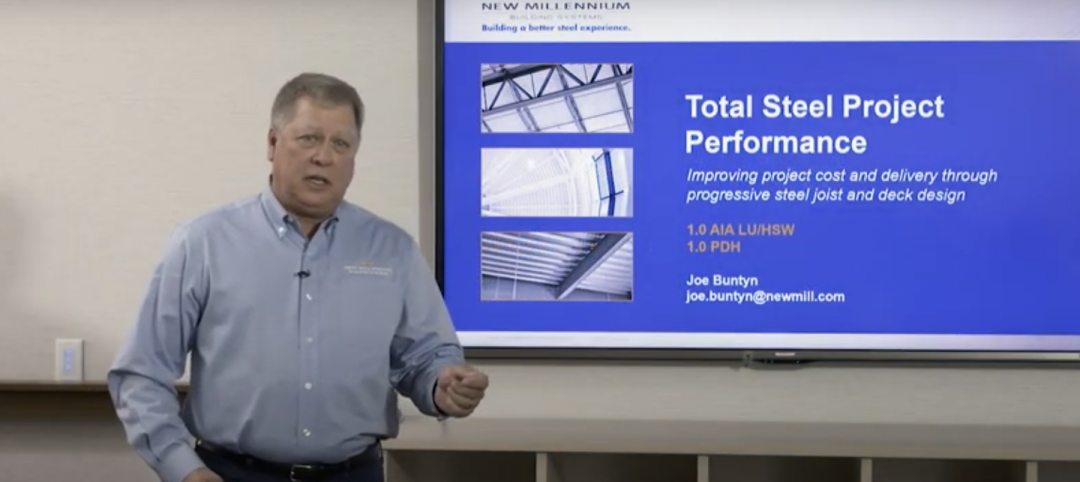The nonresidential building market was hamstrung by weather-related delays during the first part of the 2014, but conditions improved dramatically throughout the rest of the year to finish with greater than anticipated spending levels. The commercial construction sector is now looking at double-digit increases in 2015, led by vigorous levels of demand for hotels and office buildings.
The American Institute of Architects’ (AIA) semi-annual Consensus Construction Forecast, a survey of the nation’s leading construction forecasters, is projecting that spending will see a 7.7% increase in 2015, with next year’s projection nudging up to 8.2%.
VIDEO: Q1 2015 Economic Forecast
“This is the first time since the Great Recession that every major building category is projected to see increases in spending,” said AIA Chief Economist, Kermit Baker, PhD, Hon. AIA. “But by far, the most significant driver that will fuel greater expansion in the marketplace is the revival in the institutional sector, especially with growing demand for new healthcare and education facilities, which alone traditionally account for a third of spending on new building construction.”
Baker continued, “The overall construction industry appears to be on very solid ground for the next two years. That said, uncertainties in international economies, potential labor shortages, lower energy costs, rising interest rates and construction costs all are factors that we will be watching closely to see how they may adversely impact the marketplace.”
Market Segment Consensus Growth Forecasts
Overall nonresidential building
2015: 7.7%
2016: 8.2%
Commercial/industrial
2015: 11.8%
2016: 10.4%
Hotels
2015: 15.3%
2016: 10.4%
Office buildings
2015: 12.9%
2016: 11.5%
Industrial facilities
2015: 10.5%
2016: 10.1%
Retail
2015: 10.1%
2016: 9.0%
Institutional
2015: 5.0%
2016: 5.4%
Amusement/recreation
2015: 9.1%
2016: 5.3%
Education
2015: 4.7%
2016: 5.2%
Healthcare facilities
2015: 4.7%
2016: 6.2%
Public safety
2015: 1.7%
2016: 3.6%
Religious
2015: 1.2%
2016: 3.6%
About the AIA Consensus Construction Forecast Panel
The AIA Consensus Construction Forecast Panel is conducted twice a year with the leading nonresidential construction forecasters in the United States including, McGraw Hill Construction, Wells Fargo Securities, IHS-Global Insight, Moody’s economy.com, Reed Business Information, Associated Builders & Contractors and FMI. The purpose of the Consensus Construction Forecast Panel is to project business conditions in the construction industry over the coming 12 to 18 months. The Consensus Construction Forecast Panel has been conducted for 16 years.
Related Stories
Sponsored | BD+C University Course | Apr 1, 2022
Video surveillance systems for multifamily housing projects
This introductory course provides detailed technical information and advice from security expert Michael Silva, CPP, on designing a video surveillance system for multifamily housing communities – apartments, condominiums, townhouses, or senior living communities. Technical advice on choosing the right type of cameras and optimizing the exterior lighting for their use is offered.
K-12 Schools | Apr 1, 2022
Charleston County’s award-winning career and technical education high school
BD+C Executive Editor Rob Cassidy talks with the team behind the award-winning Cooper River Center for Advanced Studies, a Career|Technical Education high school in Charleston County, S.C.
Modular Building | Mar 31, 2022
Rick Murdock’s dream multifamily housing factory
Modular housing leader Rick Murdock had a vision: Why not use robotic systems to automate the production of affordable modular housing? Now that vision is a reality.
Contractors | Mar 28, 2022
Amid supply chain woes, building teams employ extreme procurement measures
Project teams are looking to eliminate much of the guesswork around product availability and price inflation by employing early bulk-purchasing measures for entire building projects.
Contractors | Mar 23, 2022
Hiring Construction Workers in a Frantic Post-Covid Job Market
McCarthy Building Companies' Director of Talent Acquisition, Ben Craigs, discusses the construction giant's recruitment and training strategies in a hyper-competitive market. Craigs sits down with BD+C Senior Editor John Caulfield.
Sponsored | BD+C University Course | Jan 30, 2022
Optimized steel deck design
This course provides an overview of structural steel deck design and the ways to improve building performance and to reduce total-project costs.
Urban Planning | Jan 25, 2022
Retooling innovation districts for medium-sized cities
This type of development isn’t just about innovation or lab space; and it’s not just universities or research institutions that are driving this change.
Sponsored | Resiliency | Jan 24, 2022
Norshield Products Fortify Critical NYC Infrastructure
New York City has two very large buildings dedicated to answering the 911 calls of its five boroughs. With more than 11 million emergency calls annually, it makes perfect sense. The second of these buildings, the Public Safety Answering Center II (PSAC II) is located on a nine-acre parcel of land in the Bronx. It’s an imposing 450,000 square-foot structure—a 240-foot-wide by 240-foot-tall cube. The gleaming aluminum cube risesthe equivalent of 24 stories from behind a grassy berm, projecting the unlikely impression that it might actually be floating. Like most visually striking structures, the building has drawn as much scorn as it has admiration.
Engineers | Jan 12, 2022
Private equity: An increasingly attractive alternative for AEC firm sellers
Private equity firms active in the AEC sector work quietly in the background to partner with management, hold for longer periods, and build a win-win for investors and the firm. At a minimum, AEC firms contemplating ownership transition should consider private equity as a viable option. Here is why.
Sponsored | BD+C University Course | Jan 12, 2022
Total steel project performance
This instructor-led video course discusses actual project scenarios where collaborative steel joist and deck design have reduced total-project costs. In an era when incomplete structural drawings are a growing concern for our industry, the course reveals hidden costs and risks that can be avoided.


